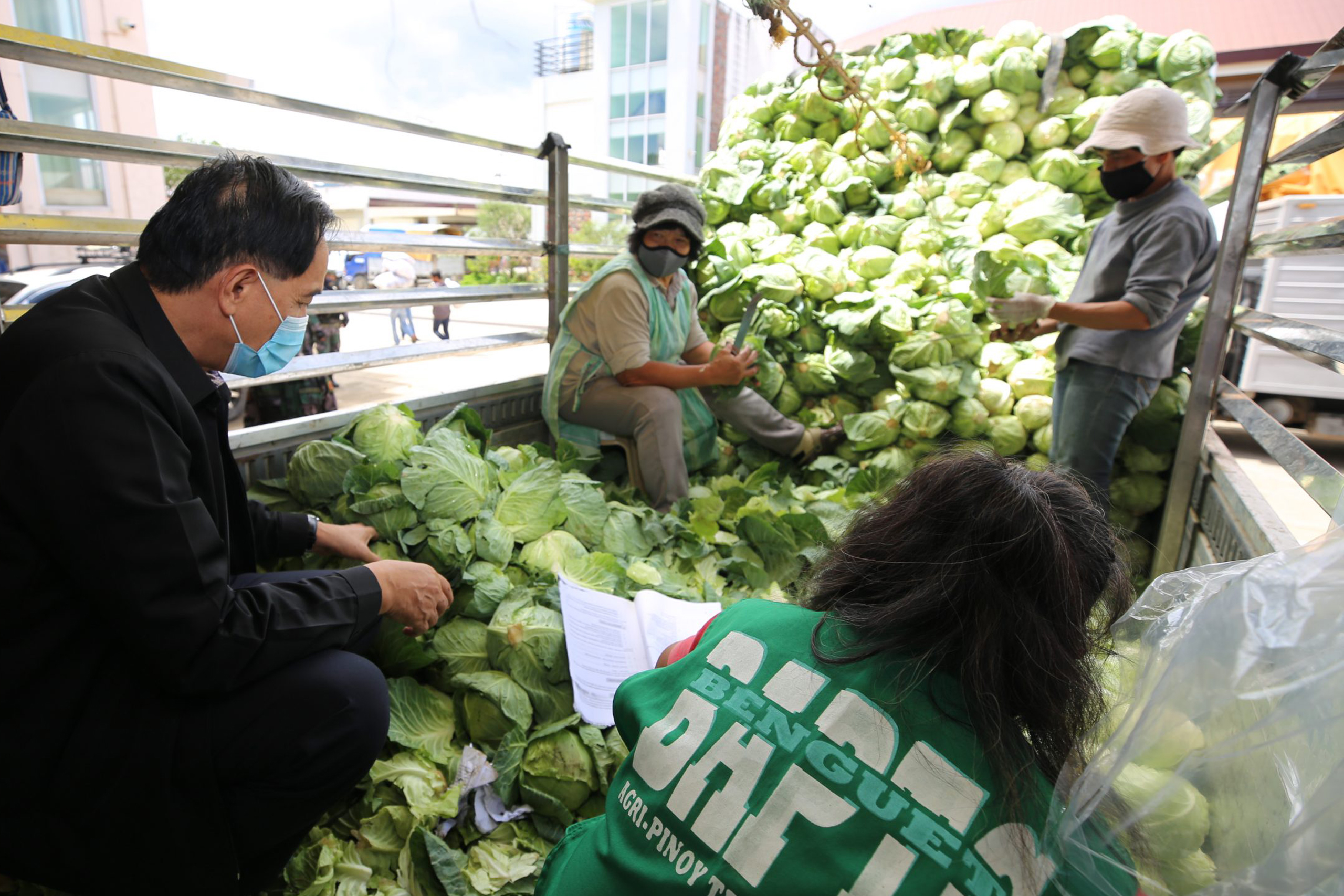
Amid the price drop of cabbage and other vegetables in Benguet, the Department of Agriculture-Cordillera (DA-CAR) unfurled a plan to arrest the problem.
Due to the current oversupply situation, prices of Chinese cabbage this second week of August ranged from P8 per kilogram (kg) to P20/kg, compared to its average production cost of 8.60/kg, said DA Cordillera Administrative Region (CAR) OIC-director Cameron Odsey.
To arrest falling prices of cabbage, Odsey said they will enhance Kadiwa marketing activities, targeting to deliver 5,000 kg to Metro Manila and other markets in Luzon, up to September, in partnership with five farmers’ groups.
As of August 14, the DA-CAR has bought 4.5 tons of cabbage, said Odsey.
The monitored price for cabbage, this first semester, is generally good — with a low of P10.53/kg (January) to a high of P53.33/kg (June) — he added.
The DA-CAR will also enhance other Kadiwa platforms like Kadiwa on Wheels and Kadiwa Retail Stores, aiming to sell up to 4,200 kg weekly of cabbage and other vegetables.
“The DA continues to implement its mandate under the Plant, Plant, Plant Program under the leadership of Secretary William Dar to ensure food production, accessibility, affordability, and availability” added Odsey.
As part of the Plant, Plant, Plant program, the Kadiwa ni Ani at Kita marketing initiative has to date benefited tens of thousands of farmers and more than two million family households and consumers nationwide.
Kadiwa features several platforms like the Kadiwa on Wheels, Kadiwa Retailing, Kadiwa Express, and online e-Kadiwa, which enables consumers to buy food while under community quarantine to curb the spread of Covid-19.
As of August 14, Odsey said the DA-CAR through its agribusiness marketing assistance division (AMAD) has served 101 areas through the Kadiwa on Wheels, selling 27,081 kg of assorted vegetables worth P939,360.
The Kadiwa retail store at the DA-CAR compound, with nine farmers’ groups, catered to hundreds of consumers who bought 17,742 kg of assorted vegetables worth P1,346,288.
Under the Kadiwa Express — where the DA provides farmers’ groups transport assistance and links them directly to buyers — a total of P21.75 million was generated from 768,070 kg of assorted vegetables sold.
Odsey said the DA-CAR Kadiwa Express has to date assisted 23 farmers’ groups, 54 NGOs, and eight LGUs.
Through all these Kadiwa marketing initiatives, amid the COVID-19 pandemic, Cordillera farmers have earned and continue to realize more income, and at the same time provided consumers with affordable and nutritious vegetables, Odsey said.
Meanwhile, from September to December, the Benguet Agri-Pinoy Trading Center (BAPTC), in La Trinidad will serve as the “buyer of last resort,” when there is an oversupply of vegetables in the Cordillera region, he added.
The BAPTC — operated and managed by the Benguet State University (BSU) in partnership with the DA-CAR, La Trinidad LGU, and farmers’ groups — serves as the region’s main wholesale vegetable trading center.
Odsey said vegetables that cannot be absorbed by the BAPTC can be sold through the several DA-CAR Kadiwa platforms. The BAPTC will soon have a P20-million vegetable and fruit processing facility, funded by the DA, through Agriculture Secretary William Dar.
Odsey said they will pursue medium to long-term activities aimed at developing new markets for Cordillera vegetables, linking farmers to financial institutions, and selling their produce regularly through the Kadiwa outlets.
Odsey said the DA-CAR is embarking on an “Enhanced Kadiwa program,” with an additional budget of P22 million. It will be used to procure one customized KADIWA vehicle and provide a P20-million grant to eligible farmers’ cooperatives and associations (FCAs) for their operating capital. ### (DA StratComms)













